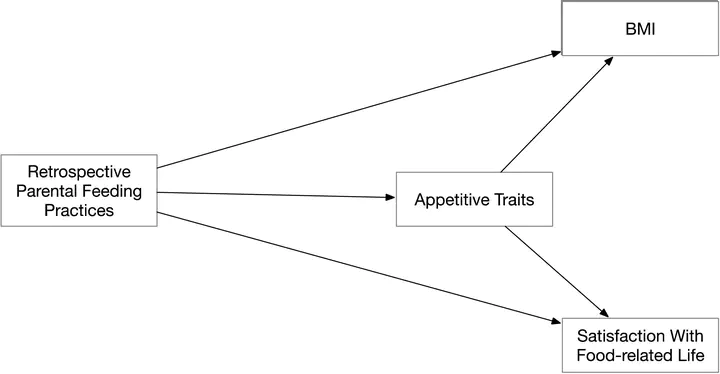Relationships between retrospective parental feeding practices and Chinese young adults’ current appetitive traits, weight status, and satisfaction with food-related life

Accumulating evidence suggests that parental feeding practices during childhood are related to adults’ eating behaviors and weight status, but research exploring these relationships were limited and largely conducted in Western contexts. However, China, a country holds the largest world population, has distinct patterns of eating habits and food culture from Western countries. Therefore, the present study aimed to examine relationships between retrospective parental feeding practices (e.g., concern, monitoring, pressure to eat, and restriction) and current body mass index (BMI) and satisfaction with food-related life in a sample of 476 Chinese young adults (195 men) with a mean age of 19.78 (SD = 1.23) years. We also examined whether appetitive traits mediated these associations. Retrospective parental feeding practices were significantly related with participants’ current BMI (concern: r = .26, p < .001; pressure to eat: r = -.15, p < .001) and satisfaction with food-related life (concern: r = .15, p < .001; monitoring: r = .12, p = .009; pressure to eat: r = .13, p = .006; restriction: r = .16, p < .001). Relationships were partially mediated by young adults’ current appetitive traits (e.g., enjoyment of food, emotional overeating, satiety responsiveness, slowness in eating). These findings suggest that retrospective parental feeding practices are important correlates of young adults’ current weight status and satisfaction with foodrelated life, and that appetitive traits partially explain these relationships in the Chinese context.